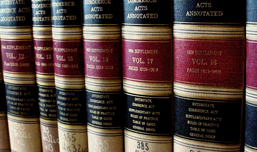Personal liabilities of directors
Overview
Becoming a director gives status and a direct impact on the strategy and success of a business. How free is a director to act alone? What obligations and duties should a director bear in mind?
This is the third of four articles summarising the general duties and potential liabilities of a director of an English private company (which is not in a group with a PLC).
Day-to-day management of a company is delegated to the directors by its shareholders. Directors are initially appointed by the shareholders and can usually themselves appoint additional directors up to any limit set by the articles of association.
 The decisions of the directors are taken collectively by the board of directors. A director cannot act as a director on his own unless only one director has been appointed. Decisions are either taken by majority vote at board meetings or by the signing by all the directors of a written resolution.
The decisions of the directors are taken collectively by the board of directors. A director cannot act as a director on his own unless only one director has been appointed. Decisions are either taken by majority vote at board meetings or by the signing by all the directors of a written resolution.
The director's role and his powers are primarily defined in the company's articles and, if he is also an employee, in his service contract.
The mere fact of appointment does not normally give a director any executive powers. Most directors are, however, also employees of the company with specific powers delegated to them. A managing director usually has extensive powers to take day-to-day decisions on behalf of the company. Other directors such as sales directors or finance directors will have a more limited role.
Directors owe a duty to the company and, if insolvency threatens, to creditors (see Directors and insolvency). Certain key duties of directors have been placed on a statutory footing under the Companies Act 2006 (the "Act"). These duties are owed to the company. (See What obligations does a director have? Part I: statutory duties and Part II: other general duties).
Directors are also subject to a number of other statutory requirements and restrictions. These include a duty to keep proper books and records and restrictions on entering into certain transactions with the company or accepting loans from the company. Breach of these duties and requirements can result in a director being disqualified from acting as a director and in many cases can lead to the director incurring personal liability (see below). Insurance can be obtained to cover some cases of personal liability.
Personal liability
In addition to the circumstances set out above in which a director may be required to account for monies received or to indemnify the company against losses incurred, a director may be personally liable:
- to a fine if the company does not comply with any of the requirements in The Companies (Trading Disclosures) Regulations 2008 and fails to make the trading disclosures required under those Regulations (Regulation 10 of The Companies (Trading Disclosures) Regulations 2008);
- on contracts signed by him purportedly on behalf of the company before its incorporation (section 51 of the Act);
- if he acts in the management of the company while disqualified or acts on the instructions of someone whom he knows to be disqualified (section 15 of the Company Directors Disqualification Act 1986);
- if he has previously been director of a company which has gone into insolvent liquidation and is then concerned in the carrying on by another company of business under a name which is the same as or similar to the name used by the insolvent company within 12 months before it went into liquidation (section 217 of the Insolvency Act 1986);
- if he has been served with a contribution notice by The Pensions Regulator on the grounds that he has been party to, or knowingly assisted in, an act or failure to act one of the main purposes of which was to remove or reduce the requirement or ability of an employer to pay a debt due under section 75 of the Pensions Act 1995 on the winding up of a pension scheme;
- for damages if he makes a fraudulent or negligent misrepresentation in the course of negotiating a contract between the company and the third party;
- under the criminal offence of making a false statement as to the affairs of the company with the intent of deceiving shareholders or creditors of a company (section 19 of the Theft Act 1968);
 under the criminal offences under the Fraud Act 2006 of dishonestly making a representation which is untrue or misleading where the person making it knows that it is, or might be, untrue or misleading and dishonestly failing to disclose to another person information which he is under a legal duty to disclose, both offences requiring the intention of making a gain or causing loss or risk of loss to another person (sections 2 and 3 of the Fraud Act 2006);
under the criminal offences under the Fraud Act 2006 of dishonestly making a representation which is untrue or misleading where the person making it knows that it is, or might be, untrue or misleading and dishonestly failing to disclose to another person information which he is under a legal duty to disclose, both offences requiring the intention of making a gain or causing loss or risk of loss to another person (sections 2 and 3 of the Fraud Act 2006); - for imprisonment (up to 10 years) or a fine if he is knowingly party to the company carrying on its business with intent to defraud creditors of the company or of another person or for any fraudulent purpose (section 993 of the Act );
- under a contract if he fails to make it clear that he is contracting as an agent of the company and not personally;
- to a third party for damages for breach of an implied warranty of authority if he concludes a contract on behalf of the company but exceeds his authority in so doing and the company is therefore able to set the contract aside; or
- in relation to wrongful trading or fraudulent trading by the company under the Insolvency Act 1986 (see Directors and insolvency).
A number of statutes contain provisions stating that if a company commits a criminal offence, a director is also guilty of the offence if it is proved to have been committed with the consent or connivance of, or to have been attributable to any neglect on the part of, the director. In this context, ‘consent’ means being aware of what is going on and agreeing to it; and ‘connivance’ means knowledge together with a negligent failure to prevent. ‘Neglect’ implies that there is no need for knowledge of the matters amounting to the offence, instead, there merely is a failure to act when under a duty to do so.
Corruption and Bribery
Bribery Act 2010
The Bribery Act 2010 ("BA 2010") came into force on 1 July 2011. It extends the crime of bribery to cover all private sector transactions (previously, bribery offences were confined to transactions involving public officials and their agents).
The BA 2010 creates four separate offences:
- a general offence of offering, promising or giving a bribe (section 1);
- a general offence of requesting, agreeing to receive or accepting a bribe (section 2);
- a distinct offence of bribing a foreign public official to obtain or retain business (section 6); and
- a strict liability offence for commercial organisations that fail to prevent bribery by those acting on their behalf, where the bribery was intended to obtain or retain a business advantage for the commercial organisation (section 7).
Potential liability of directors: offences under sections 1, 2 and 6
Where a company (and not merely individuals acting on its behalf) is convicted of an offence under sections 1, 2 or 6 (offering, or receiving a bribe, or bribing a foreign public official), its directors can be held liable with the company. This is if it can be shown that they "consented" to or "connived" in the bribery. Whilst "consent" and "connivance" are not defined, it is thought these could mean, for example, being aware that there is a good chance that bribery is going on and doing nothing to investigate or put a stop to it.
To be held liable, the director must have a close connection to the UK e.g. be a British citizen, an individual ordinarily resident in the UK or a British Overseas citizen.
A director found guilty of any of these offences could face a maximum penalty of 10 years imprisonment and/or an unlimited fine. A director convicted of bribery could also face disqualification from holding a director position for up to 15 years.
Potential liability of the company: section 7 offence
 The company will commit an offence if a person associated with it bribes another person for that company's benefit, subject to the "adequate procedures" defence described below. Whether a person is "associated" with the company will be construed widely. A person will be "associated" with the company if it performs services for or on behalf of the company, regardless of the capacity in which they do so. This could therefore cover agents, employees, subsidiaries, intermediaries, joint venture partners and suppliers, all of whom could potentially render the company (and its group) guilty of this offence.
The company will commit an offence if a person associated with it bribes another person for that company's benefit, subject to the "adequate procedures" defence described below. Whether a person is "associated" with the company will be construed widely. A person will be "associated" with the company if it performs services for or on behalf of the company, regardless of the capacity in which they do so. This could therefore cover agents, employees, subsidiaries, intermediaries, joint venture partners and suppliers, all of whom could potentially render the company (and its group) guilty of this offence.
Furthermore, this is a strict liability offence. This means that there is no need to prove a motive. The company can receive an unlimited fine if it is found that it is in breach of this section.
The company has a defence if it can prove it had "adequate procedures" in place to prevent bribery. "Adequate procedures" are not defined in the BA 2010 but the Ministry of Justice has published guidance ("Guidance") on what adequate procedures might involve. This guidance sets out six principles for companies to follow, which are designed to help businesses understand the sorts of procedures they might put in place to prevent bribery occurring within the company. These are:
- Proportionate procedures
- Top – level commitment
- Risk assessment
- Due diligence
- Communication (including training)
- Monitoring and review
Whilst this offence relates to the company rather than directors individually, the board needs to be happy with the company's overall approach to preventing bribery. As well as a general risk assessment of the company's business, it is likely that a review of the company's current procedures, alongside the Guidance, will be necessary in order to implement measures that mean that the company is satisfied that it does have "adequate procedures" in place to prevent bribery.
Health and Safety
Health and Safety at Work etc Act 1974
 Responsibility for health and safety matters is a responsibility of the company rather than of individual directors. However, where a ‘body corporate’ commits a health and safety offence with the consent or connivance of a director or the offence is attributable to his neglect, then he is liable to be prosecuted (section 37 of the Health and Safety at Work etc Act 1974). (In this context, consent means knowing of the circumstances and the risks, whilst connivance means knowing and not doing anything about the risks. Neglect means unreasonable breaching of a duty of care.) If convicted, a director could be imprisoned for up to two years and fined an unlimited amount (Schedule 3A to the Health and Safety at Work etc Act 1974) and a director can also be disqualified from being a director for a period of time (section 2(1) of the Company Directors Disqualification Act 1986).
Responsibility for health and safety matters is a responsibility of the company rather than of individual directors. However, where a ‘body corporate’ commits a health and safety offence with the consent or connivance of a director or the offence is attributable to his neglect, then he is liable to be prosecuted (section 37 of the Health and Safety at Work etc Act 1974). (In this context, consent means knowing of the circumstances and the risks, whilst connivance means knowing and not doing anything about the risks. Neglect means unreasonable breaching of a duty of care.) If convicted, a director could be imprisoned for up to two years and fined an unlimited amount (Schedule 3A to the Health and Safety at Work etc Act 1974) and a director can also be disqualified from being a director for a period of time (section 2(1) of the Company Directors Disqualification Act 1986).
Under the Health and Safety Executive ("HSE")'s enforcement policy statement, one of its purposes is to ensure directors are brought to account before the courts if they fail in their health and safety responsibilities. HSE Inspectors have been asked to consider in particular the management chain and role played by individuals in any health and safety breaches. Organisations and individuals found guilty of health and safety breaches will be named in the HSE’s annual report each year.
The HSE and the Institute of Directors have published guidance as to the health and safety responsibilities of company directors, recommending that each board must:
- accept its collective role in providing health and safety leadership in their organisation;
- nominate a director to champion health and safety issues;
- ensure that each member accepts individual responsibility and makes sure that their actions and decisions at work reinforce the messages in the board's health and safety;
- make sure all decisions reflect the intentions in the organisation's health and safety policy;
- encourage workers at all levels to become actively involved in health and safety; and
- keep up to date with relevant health and safety risk management issues and review its health and safety performance regularly, at least annually.
The recommendations do not have statutory force but failure to implement them could well be taken into account by prosecutors in deciding whether to bring criminal charges against a director in the event of an accident. By contrast, implementation of the recommendations should enable directors to demonstrate that they have complied with the law.
Manslaughter
Companies and individuals (including the directors and managers of a company) are subject to the common law offence of manslaughter by gross negligence, which applies where (according to R v Adomako [1994] 3 All ER 79):
- the defendant owed a duty of care to the deceased;
- there had been a breach of this duty of care; and
- the breach was so grossly negligent that the defendant can be deemed to have had such disregard for the life of the deceased that the defendant's conduct should be seen as criminal and deserving of punishment.
 A conviction of an individual for gross negligence manslaughter carries a maximum sentence of life imprisonment.
A conviction of an individual for gross negligence manslaughter carries a maximum sentence of life imprisonment.
The Corporate Manslaughter and Corporate Homicide Act 2007 creates an offence of corporate manslaughter (known as corporate homicide in Scotland) in the UK, which replaces the common law offence of manslaughter by gross negligence for companies, partnerships, trade unions and other organisations. An organisation will be guilty of corporate manslaughter if:
- the way in which its activities are managed or organised causes a person’s death;
- the death results from a gross breach of a duty of care owed by the organisation to that person; and
- the senior management had organised or managed the organisation’s activities in such a way to be a substantial element of the breach.
The Corporate Manslaughter and Corporate Homicide Act does not apply to individuals, but if found guilty an organisation will be subject to an unlimited fine.
If you have any questions on this article or would like to propose a subject to be addressed by Synapse please contact us.


